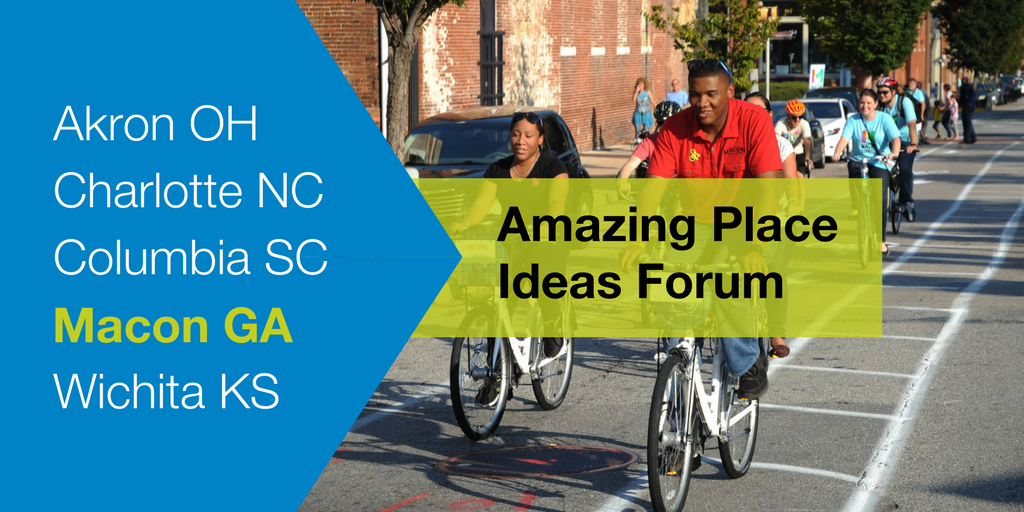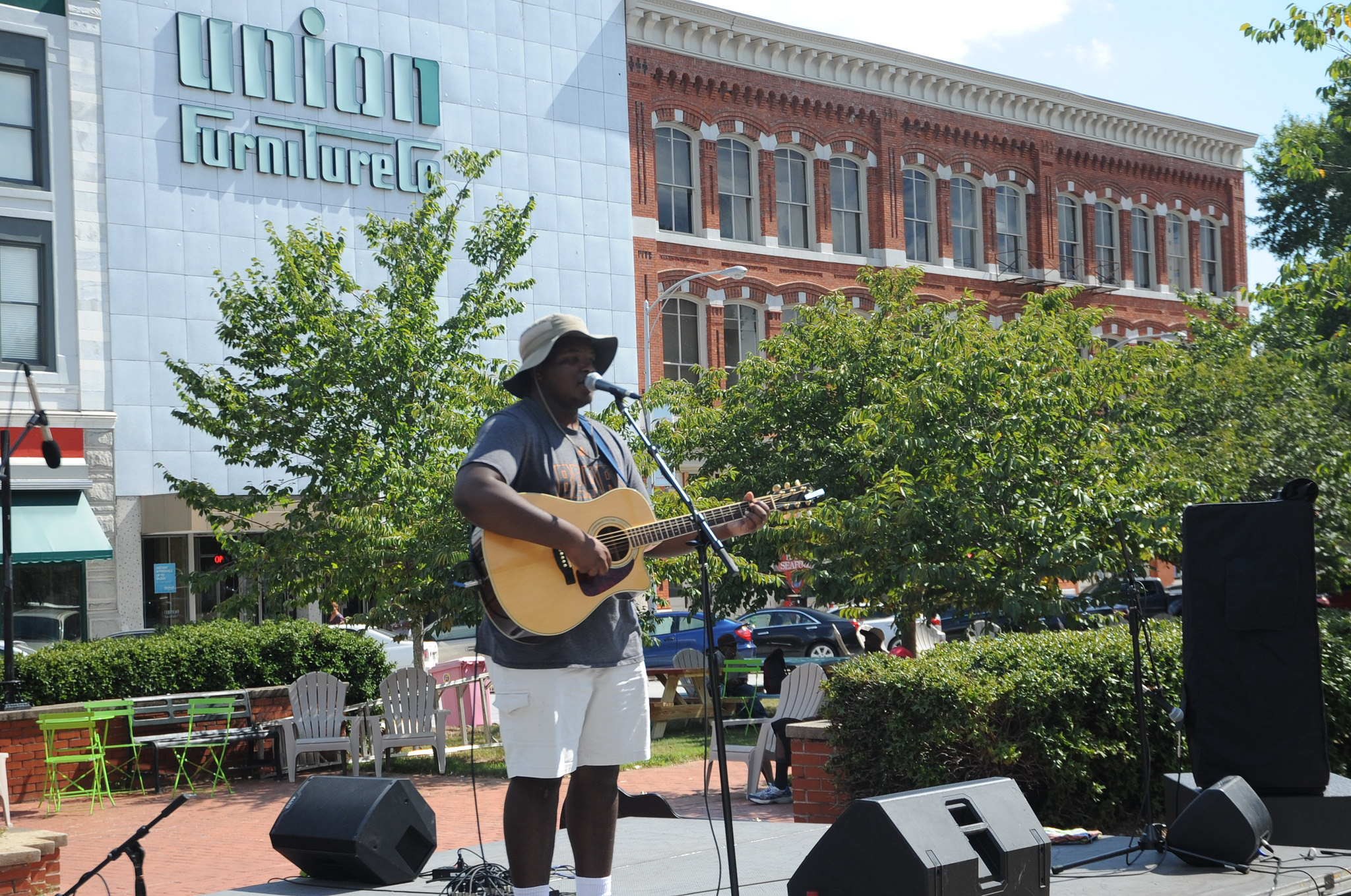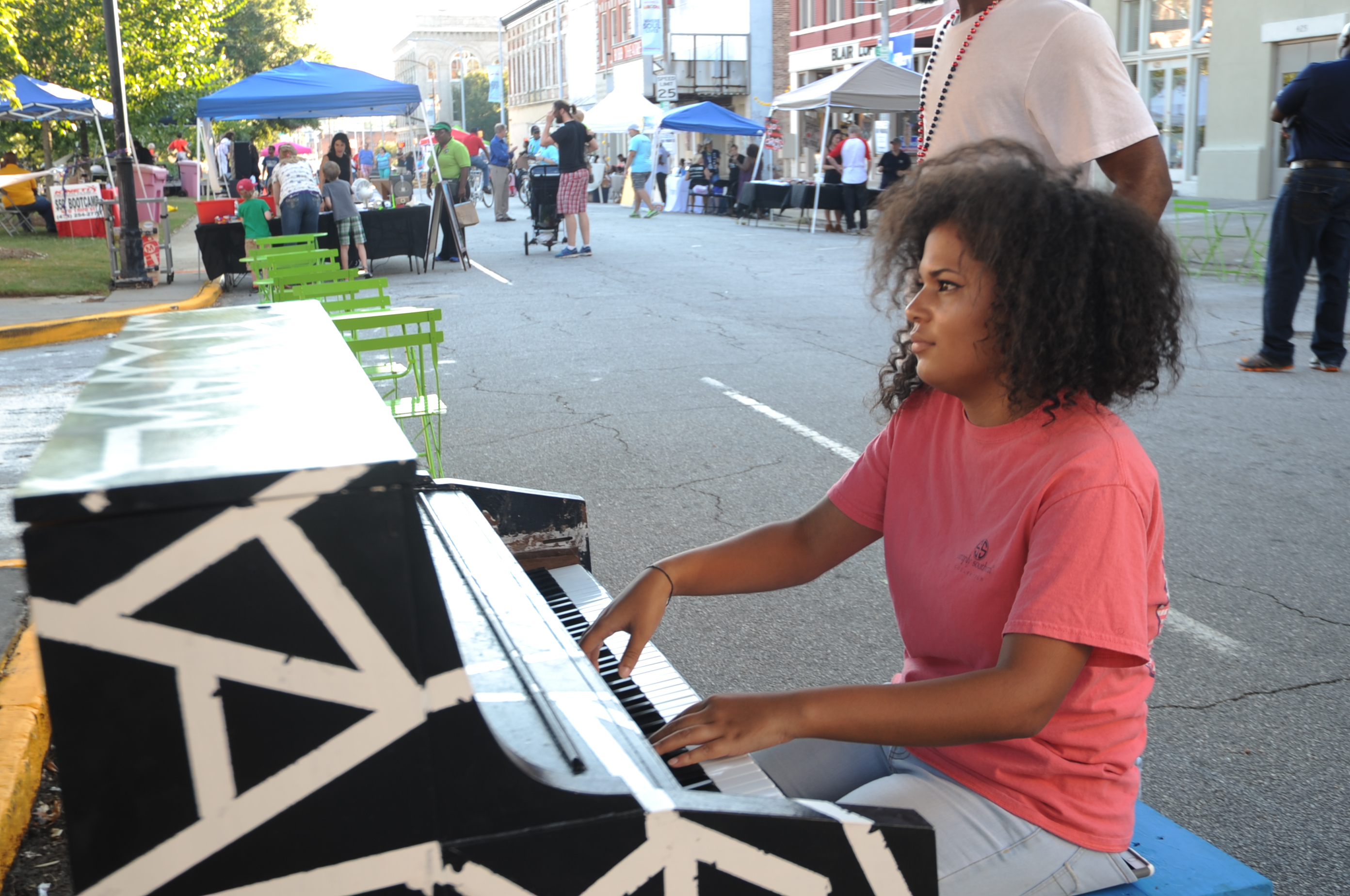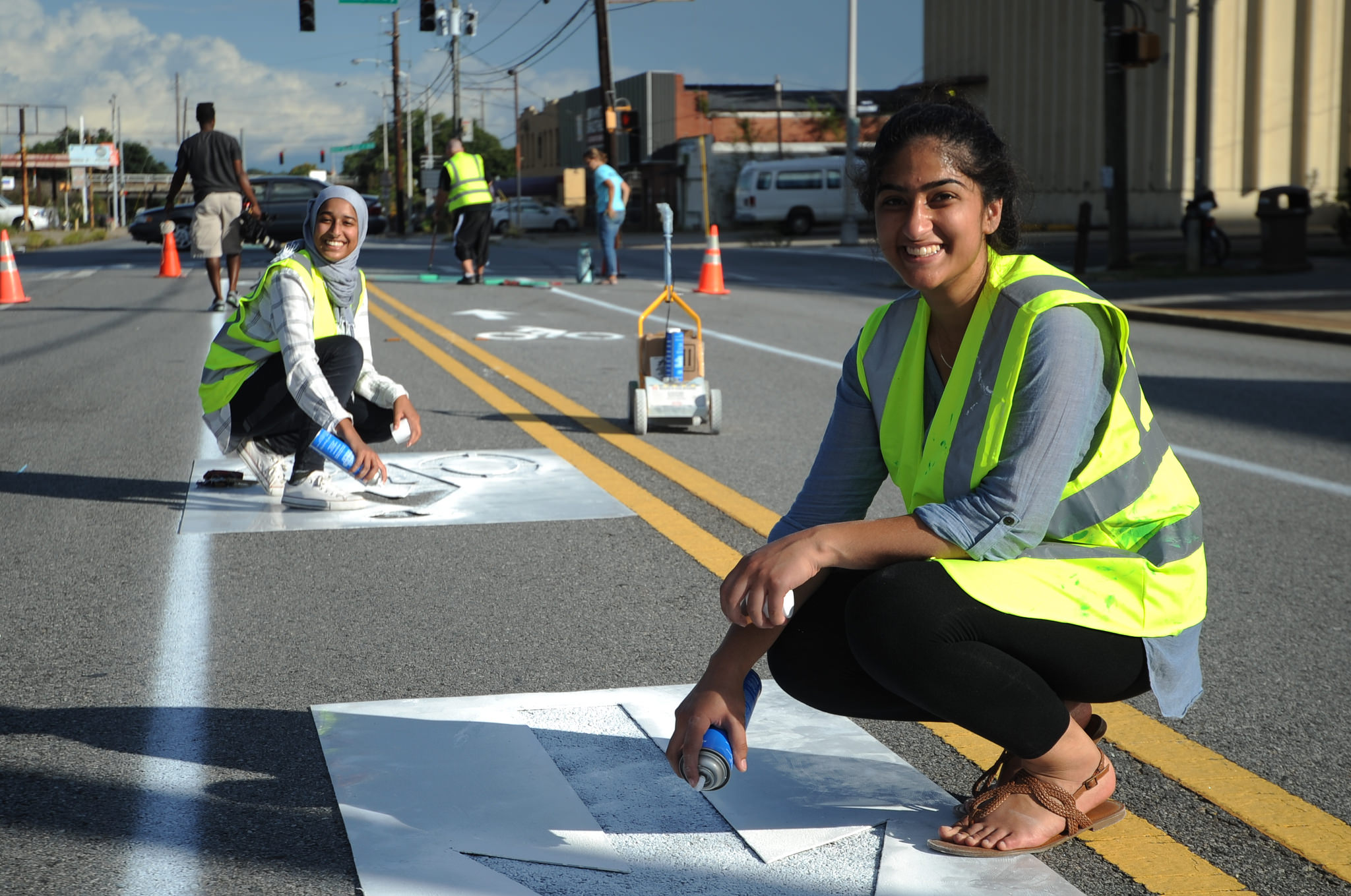
News
By Smart Growth America, August 24, 2017

From native American history to the birthplace of great American music, Macon, Georgia, has a rich heritage. City leaders have witnessed the positive returns of a place-based approach to economic development, but those efforts have largely originated outside of government. Macon’s Amazing Place leadership team of mostly elected officials wants to learn more about bringing those same strategies in-house.
We’re bringing five U.S. cities together at the Amazing Place Ideas Forum, an innovative, experiential event that’s all about placemaking as the core of an economic development strategy. As we, along with the John S. and James L. Knight Foundation, get ready for the Forum next week, learn about each of the participating cities in our #AmazingPlaceForum blog post series.
Updated 8/28/2017: With the Forum getting underway this week, we corralled all of the related resources in one place for those interested in following along and learning more during the Forum. Read the full report, find out how to follow along online, and read the profiles of the other four participating cities here.
In the past, some of Macon’s elected leaders have “tended to use an approach that spreads initiatives over wider areas instead of focusing limited resources on areas of highest returns,” according to Alex Morrison, Assistant Manager of Economic Development and Director of the Urban Development Authority, in the city’s application for the Forum.
In Macon, this old approach focused on bringing something (companies, etc.) from outside instead of focusing on building up the community from within. Macon’s leaders want to change that, and they’re already tasting some success, which they hope to build upon with the Amazing Place Ideas Forum next week in Denver.

There’s already been significant positive change and growth in Macon’s downtown, a historic street grid full of 19th and early 20th century architecture, multiple parks, and a network of riverfront trails.
To help guide and better coordinate this growth, the Macon-Bibb County Urban Development Authority formed the Macon Action Plan (MAP) in 2015, informed by a deep well of public input. The MAP is a comprehensive, community-driven placemaking plan that envisions the future of Macon’s historic downtown and intown neighborhoods. Implementers of the plan have focused on supporting the city’s anchors of economic development through connectivity projects and residential development, like improving walking or biking connections to the city’s impressive trail network that largely follows the Ocmulgee River.
“MAP thoroughly recommended ways that we could connect that trail system to the businesses and job sector of downtown and we’re actively working to make that happen,” says Morrison.
One of their inspirations for this place-based approach has been the ongoing work to better connect downtown Macon with an area known as College Hill southwest of downtown, where Mercer University is located. But that connection goes two ways, and the Action Plan is also about building a surrounding community that’s more attractive to local college graduates in order to encourage them to stay in Macon after they graduate. These efforts — including creating and redeveloping parks, increasing the supply of loft apartments, investing in restaurants and new bars, supporting the local music scene, and committing to bike and pedestrian infrastructure — have led to notable increases in young professionals choosing to start their careers in Macon.

There are big decisions looming on the horizon in Macon about how to invest millions in flexible tax funds, and those decisions will either help or hurt what Macon’s forward-looking leaders — public and private — are trying to accomplish. Last November, voters approved a one-percent sales tax for a period of six years in order to fund greatly needed projects in five key areas: public safety, infrastructure, economic development, recreation and cultural arts, and debt retirement. To guide this funding towards concentrated efforts in placemaking with the highest returns, government authorities, non-profit organizations, Mercer, and several local philanthropies have become champions of the MAP.
Macon’s leadership team hopes to avoid low-return projects from past decades like road widenings, or disconnected parks and recreation centers that require cars to access. “It’s our hope that the Ideas Forum can inspire these leaders to look at enhancing place in a more profound way,” says Morrison, “building on the success of talent-attraction based initiatives in downtown and College Hill and build from there, perhaps incorporating pedestrian and bicycling connectivity into more traffic and road plans and enhancing existing neighborhood parks that have been undervalued due to deferred maintenance.”
Eager to learn from Denver, CO, next week (and Greenville, SC, in November), each team member has made a commitment to making their community better and turn conventional planning on its head. Coincidentally, the Forum takes place concurrently with the first update to Macon-Bibb County’s comprehensive plan since the city and the county governments were consolidated back in 2012.
“ has come to mean jobs, but when we get down to what an economy actually is, it’s how people interact,” Morrison explains. “The word in greek for economics means ‘household management’ and if developing our household management, it’s how do people interact, grow, and flourish together. That’s what place-based strategies really are all about — how do the people experience a place.”

Macon is laying the groundwork for increased returns on investments while hoping to preserve the qualities that have always made the city great, like the historic geometric downtown grid full of buildings predating the civil war, its colleges and universities, the artistic legacies of Otis Redding, Little Richard, and the Allman Brothers, the history of the Ocmulgee Indian Mounds, and it’s engaged citizenry.
“What we’ve been trying to figure out is, how do we unlock the best version of Macon that we can be and turn that into a place that really does stand out… how do you make a place communicate all of those things that we know as Maconites to the rest of the world? If we do that, then we are going to unlock the great economic potential that we know we have.”
Photo credits: NewTown Macon via Flickr
Related News

© 2025 Smart Growth America. All rights reserved
Site By3Lane Marketing








